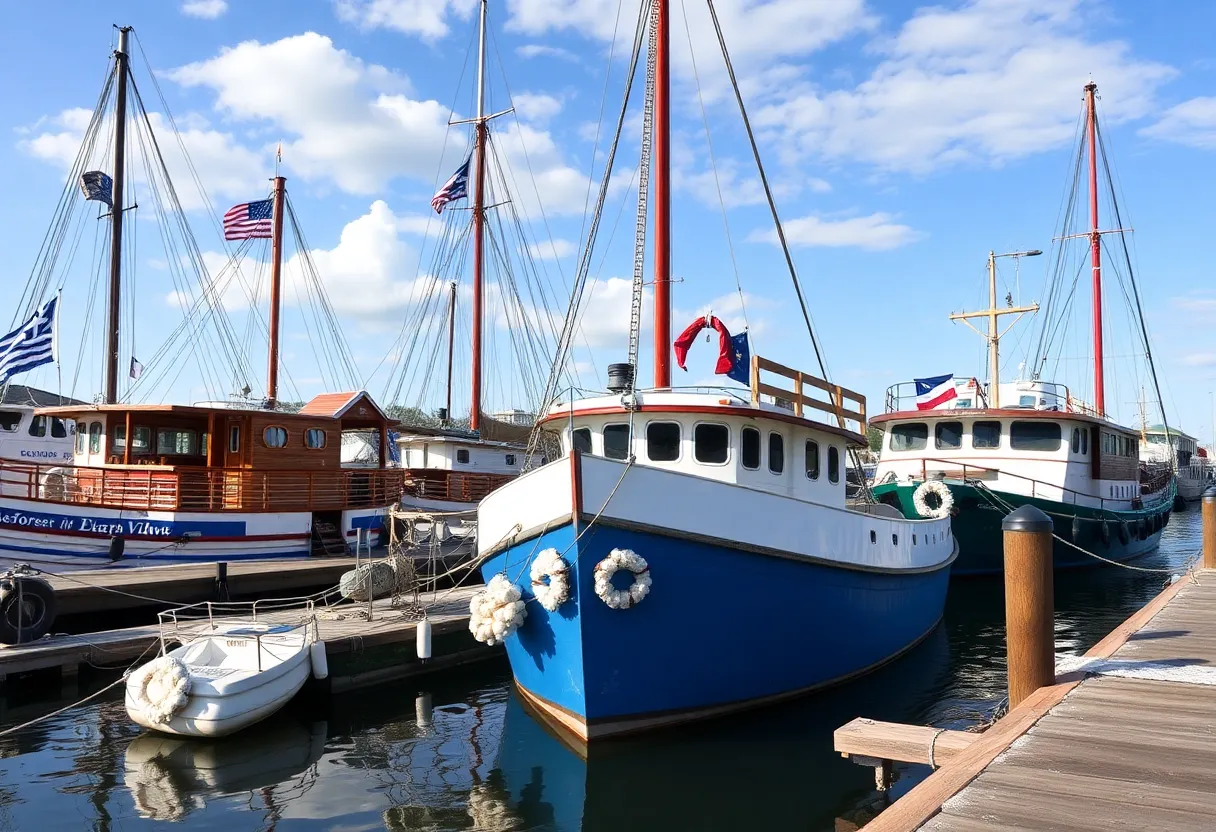News Summary
The East Mediterranean Business Culture Alliance (EMBCA) is hosting a webinar this Sunday discussing the historical ties between the Hellenic community and maritime commerce in New Orleans. Led by Lou Katsos, the panel features experts examining the contributions of Hellenic Americans, including influential merchant families and their impact on the city’s economic landscape and cultural identity. This event is part of EMBCA’s initiative commemorating America’s 250th Anniversary.
New Orleans – The East Mediterranean Business Culture Alliance (EMBCA) is set to host an engaging webinar titled “New Orleans: Hellenic Shipping/Cotton Merchants, and the 1st Greek Orthodox Community.” Scheduled for this Sunday, June 22, at 1 P.M. New Orleans time, 2 P.M. Eastern Standard Time, and 9 P.M. Athens EEST, this event aims to explore the historical ties between the Hellenic community and maritime commerce in the port city.
Lou Katsos, President of EMBCA, will introduce and moderate the panel discussion, which will feature a diverse group of experts, including Alexander Billinis, an author, writer, and lecturer at Clemson University; James G. Derbes, an attorney; Parker C. Agelasto, Executive Director of the Capital Region Land Conservancy; and Magdalene Spirros Maag, Curator of Holy Trinity Archives in New Orleans. These panelists bring a wealth of knowledge and experience, enriching the discussion around the contributions of Hellenic Americans to New Orleans and the broader U.S. historical narrative.
This webinar is part of a series organized by EMBCA’s American Hellenic U.S. Semiquincentennial Committee, known as EMBCA 250, commemorating America’s 250th Anniversary in 2026. The goal of this series is to illuminate the vital contributions made by Hellenic Americans throughout American history, emphasizing their role in shaping cultural and economic landscapes.
Historical Context of Hellenic Influence
The story of Hellenes in New Orleans is intricately linked to maritime commerce, the Orthodox faith, and transatlantic trade. Early Greek merchants, particularly from the islands of Chios, Psara, and Hydra, were attracted to New Orleans due to its pivotal role in the global cotton trade. By the early 1800s, the city had transformed into a key hub for cotton, sugar, and river commerce, fostering a vibrant marketplace.
Prominent Greek families emerged during this time, such as the Carcopoulos, Phocas, Macridges, and Dracos, who became notable shipowners and brokers connecting Southern plantations with European markets. These merchant families developed extensive networks that stretched across Chiot diaspora in cities like London, Marseille, and Smyrna. Influential merchant dynasties such as the Ralli Brothers, Rodocanachi, Spartali, and Schilizzi were pivotal in managing significant trade volumes across the British Empire, the Levant, and the Americas.
During the American Civil War, Greek merchants showcased their resilience by sourcing cotton from India and Egypt, while simultaneously playing a role in maintaining British neutrality amidst the conflict. The Hellenic community in New Orleans made a historical leap in 1864 with the establishment of Holy Trinity Greek Orthodox Church, the first of its kind in the Western Hemisphere. This institution became a cornerstone for the Orthodox faithful of various ethnicities, nurturing both a cultural and spiritual identity.
Impact on the Community
Post-war, the Hellenic community in New Orleans adapted to changing economic landscapes by entering sectors such as retail, hospitality, and maritime services. The early merchant families, realizing the importance of communal support, assisted newer immigrants, which further solidified the community’s bonds.
Holy Trinity Greek Orthodox Church continues to be a vital institution, upholding language, tradition, and faith within the community. The church’s annual Hellenic Festival celebrates Greek heritage, resilience, and cultural pride, serving as a reminder of the contributions made by Hellenic Americans to the fabric of New Orleans.
Today, the impact of Greek contributions remains significant, reflecting the cosmopolitan nature of New Orleans and the enduring presence of Greek Orthodox culture. The rich narrative involving Chiot merchant networks not only highlights their influential role in early American commerce but also their contributions to the Greek War of Independence, underscoring their deep-rooted legacy in both American and Greek histories.
Deeper Dive: News & Info About This Topic
HERE Resources
Additional Resources
- Greek News USA: EMBCA Webinar on Hellenes in New Orleans
- Wikipedia: New Orleans
- Hellenic Shipping News: Dry Bulk Shipping – China
- Google Search: Hellenic Americans
- NOLA: Tracing Greek Geography in New Orleans
- Encyclopedia Britannica: Greece
- Hellenic Shipping News: Container Price Levels
- Google News: Greek History in New Orleans

Author: STAFF HERE NEWORLEANS WRITER
The NEW ORLEANS STAFF WRITER represents the experienced team at HERENewOrleans.com, your go-to source for actionable local news and information in New Orleans, Orleans Parish, and beyond. Specializing in "news you can use," we cover essential topics like product reviews for personal and business needs, local business directories, politics, real estate trends, neighborhood insights, and state news affecting the area—with deep expertise drawn from years of dedicated reporting and strong community input, including local press releases and business updates. We deliver top reporting on high-value events such as French Quarter Festival, New Orleans Jazz & Heritage Festival, and Essence Music Festival. Our coverage extends to key organizations like the New Orleans Chamber of Commerce and Greater New Orleans, Inc., plus leading businesses in energy, healthcare, and education that power the local economy such as Entergy, Ochsner Health, and Tulane University. As part of the broader HERE network, including HEREShreveport.com, we provide comprehensive, credible insights into Louisiana's dynamic landscape.

